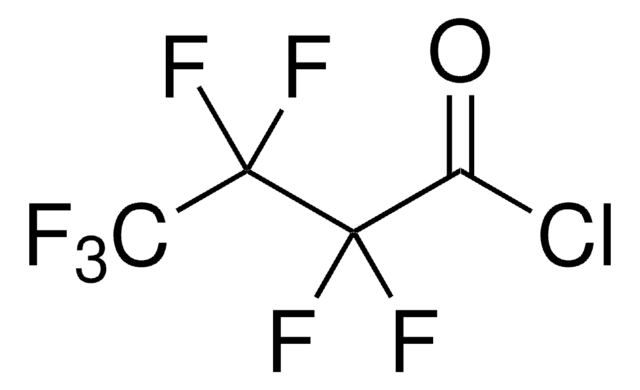267201
Platinum
wire, diam. 0.5 mm, 99.99% trace metals basis
Synonym(s):
Platinum element, Platinum gray
Sign Into View Organizational & Contract Pricing
All Photos(1)
About This Item
Empirical Formula (Hill Notation):
Pt
CAS Number:
Molecular Weight:
195.08
EC Number:
MDL number:
UNSPSC Code:
12141734
PubChem Substance ID:
NACRES:
NA.23
Recommended Products
Quality Level
Assay
99.99% trace metals basis
form
annealed
wire
resistivity
10.6 μΩ-cm, 20°C
diam.
0.5 mm
bp
3827 °C (lit.)
mp
1772 °C (lit.)
density
21.45 g/cm3 (lit.)
SMILES string
[Pt]
InChI
1S/Pt
InChI key
BASFCYQUMIYNBI-UHFFFAOYSA-N
Related Categories
General description
Platinum (Pt) is a highly ductile, malleable and unreactive metal. It is resistant to corrosion and stable at high temperatures. Although resistant to hydrochloric and nitric acid, it dissolves readily in hot aqua regia to form chloroplatinic acid.
Application
Pt wire may be used :
- as a microelectrode-indicator electrode in voltammetry
- as a transvascular embolic agent
- to study chronopotentiometry of hydrogen peroxide with a platinum wire electrode or
- in gas detection instruments.
Quantity
400 mg = 10 cm; 2 g = 50 cm
Storage Class Code
13 - Non Combustible Solids
WGK
nwg
Flash Point(F)
Not applicable
Flash Point(C)
Not applicable
Choose from one of the most recent versions:
Already Own This Product?
Find documentation for the products that you have recently purchased in the Document Library.
Customers Also Viewed
Voltammetry with Stationary Microelectrodes of Platinum Wire.
Laitinen HA and Kolthoff IM
The Journal of Physical Chemistry, 45(7), 1061-1079 (1941)
Muhammad Rashid et al.
Journal of nanoscience and nanotechnology, 13(5), 3627-3633 (2013-07-19)
Platinum nanoparticles (Pt NPs) were chemically deposited on a Nafion polymer electrolyte membrane by the impregnation-reduction (I-R) procedure to prepare an active electrode for solid electrochemical sensors. Various analysis methods such as SEM, EDX, XRD and cyclic voltammogram (CV) measurements
Yuan Xiong et al.
Organic letters, 15(8), 1962-1965 (2013-04-12)
Metal-mediated rearrangements of 3-alkynyl flavone ethers are reported. The overall process involves 5-endo enyne cyclization to a platinum-containing spiro-oxocarbenium intermediate which may be trapped with methanol to produce spirodihydrofurans or further rearranged to afford either allenyl chromanediones or benzofuranones.
Shai Rozen et al.
Plastic and reconstructive surgery, 131(6), 1253-1265 (2013-05-30)
Left untreated, paralytic lagophthalmos may result in corneal dryness, ulcerations, and subsequent blindness. The most common nondynamic surgical solution is upper eyelid weight placement in a superficial, pretarsal pocket, carrying the risk of visibility, extrusion, and entropion. The authors present
Wei Sun et al.
Materials science & engineering. C, Materials for biological applications, 33(4), 1907-1913 (2013-03-19)
In this paper a platinum (Pt) nanoparticle decorated graphene (GR) nanosheet was synthesized and used for the investigation on direct electrochemistry of myoglobin (Mb). By integrating GR-Pt nanocomposite with Mb on the surface of carbon ionic liquid electrode (CILE), a
Our team of scientists has experience in all areas of research including Life Science, Material Science, Chemical Synthesis, Chromatography, Analytical and many others.
Contact Technical Service



